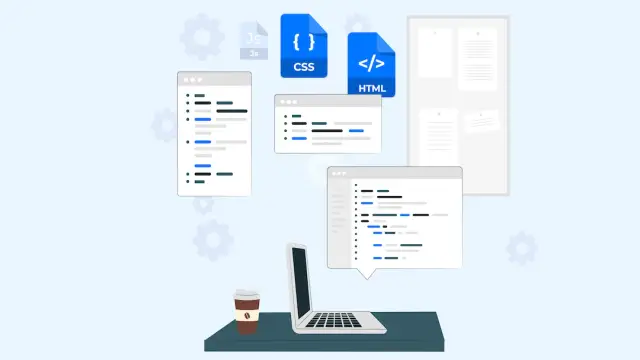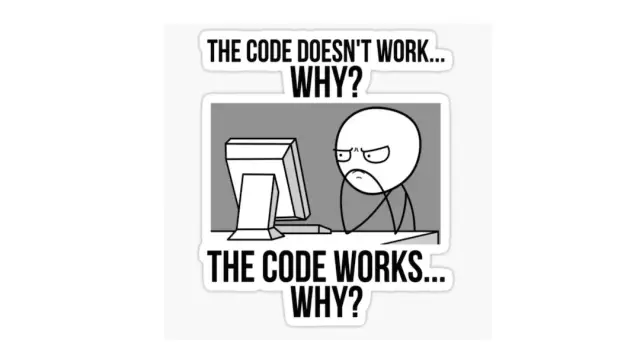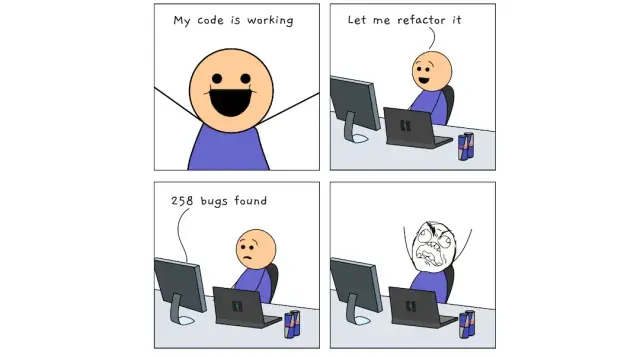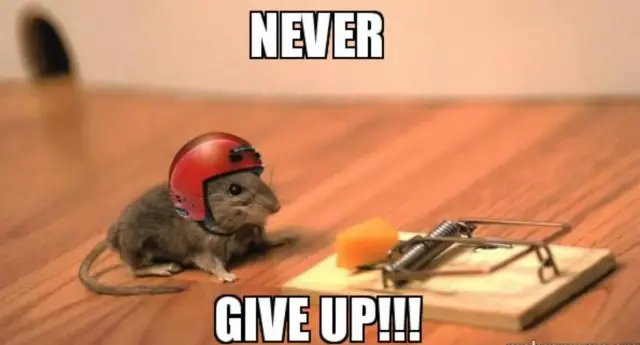Start to Think Like a Programmer While Coding Learning
Do you want to start learning the code? Explore our guide to know the best ways to start thinking like a programmer and perform coding efficiently!

Some of the basic questions that a beginner programmer often thinks about are whether learning code is complex or not. Does coding require a lot of skills and practice? How much time does one need to become an expert in programming? Well! You might have heard that programming isn't everyone's cup of tea. That is true!
You might ask yourself several questions before stepping into the world of programming. Every beginner who wants to start a career in the programming field faces these types of problems which are:
- Learning takes more time and effort than it seemed at the very beginning.
- Difficulty in understanding the level of abstraction of the language.
- Loss of motivation.
These are the common problems that many beginner programmers face in their programming careers. Today, we guide beginners on how to start thinking like a programmer. We will help you to approach a better way to learn coding as a beginner.
Also, we will talk about the trend of no-code, which is expanding in the world of programming. The no-code programming has access to the tools and complex methodologies that are difficult to learn.
So let's take a step forwards to discuss how you learn to code without having many skills!
How to Learn Coding and Think Like a Programmer?
You have to face many challenges when you start learning to code. Don't think that it is just learning a language. The main challenge that you face is to find the solution to problems. It is the difficult part that helps you to do something creative. Several people try to learn about coding and want to think like a programming experts. But it takes much time and even years. After learning code for many years, people implement the same things repeatedly.
The main thing is that the coding concepts you learn from computer science and instructors are the same. But don't think that you can implement them in the same way. Each developer follows the same rule, but their code is different. It means that the language or concept of each developer is the same. But it shows that they don't have the same type of thinking. One developer is possibly the best problem solver than others.
Further, the thinking point of each programmer is different from others. It means they understand how to make while learning code or break the problem in their way. Practice is the main key that can help you to improve your programming. So, it becomes easy for you to handle all tasks about increasing issues.
The following are the programming techniques that you can learn. These help you think like a coding expert.
Make a Programming Mindset:
Something that distinguishes programmers from other specialists. It is how a programmer approaches a problem. Programmers regularly have to look for different solutions to overcome the problem they face in programming. Programmers spend a lot of time reading documentation, manuals, and forums. Being a good researcher is part of your job.
You have to be curious and persistent enough to find a solution. You must be able to correctly formulate the question and know where to look for the answer. Thus, it is helpful for you to learn to think creatively. You also have the opportunity to learn through video games. It's like one of the options for developing creative thinking during the breaks from learning to program.
Discuss the issue:
If you are at a dead end, it may be a good idea to tell someone else about your problems. It can be your instructor or classmate. Of course, let's not forget that professional communities are a storehouse of knowledge.

Develop excellent collaboration skills:
Don't assume that programmers always work alone. They also like to learn from others. When a newbie in programming discusses a problem with other programmers, it helps him learn how to solve complex problems more effectively. One of the learning options is pair programming. In it, two programmers, studying the code, work on a computer to solve a problem.
This means that one programmer writes the code. At the same time, another programming expert is reviewing this code. So both programmers decide how to solve the problem.
Thus, it will help to see the possibilities of different solutions.
Do it step by step:
It will be better if you divide your programming task into different parts. When you divide a large job into several parts, it doesn't look so impossible anymore. You can start work gradually, completing it part by piece. This approach also helps in the fight against procrastination when the task is so big and complex that you don’t know where to start. Dividing the task into parts and planning helps you stay focused and motivated.
Newbie tip:
For newcomers to programming, two things are essential. The first is a solid knowledge of the basics, knowledge of algorithms, and patterns—secondly, a lot of practice. The more you practice, the more problems you will encounter. By solving them, you will significantly improve your programming skills. When solving a problem in practice, the chance that you will remember it is much higher than if you read about the solution somewhere. So, you should practice various tasks until you become an expert in coding. It is true that doing more programming tasks every day will give you more experience.
Practice Creative Thinking Coding Exercise
You have the option to read different coding questions online. It increases your practice level and makes you an expert. If you practice daily and learn programs each day in a better way, it can increase the functionality of the brain.
It means you can think of more creative things. Your main goal should be to solve your problem in less time. But don't think you can become an expert in a week or two. You need to work hard and be consistent while practicing.
Among all skills, the best skill is to practice different coding exercises. It can make you more creative than others. You can practice by using many sources.
Plan your decisions
Planning for writing code is essential. But even this task must be approached sensibly so that the work does not turn into continuous planning and discussion of the plan.
As some experienced programmers point out in the world of programming, there is no perfect plan, and in most cases, just a good plan is enough. A tip for perfectionists is to try and redirect your perfectionism and effort away from planning and into architecture and coding quality—code quality over planning. Quality should not be neglected.
Planning a program with a waterfall method does not always make sense. Depending on business tasks, you will often have to remove or add some functionality.
Shortcuts can be dangerous in programming:
Most people think that they can solve problems by using shortcuts. But they don't know that shortcuts are harmful. It might be possible that you face further issues by taking shortcuts. So, you must focus on the learning code process without any shortcuts.
Further, when you have to face any serious issue. Then don't go to someone else for the solution. Try to solve this issue by yourself by planning if you depend on others to solve your problem. So, you must concentrate on the programming issue, practice, and find its solution.
If you are exhausted, seek assistance:
Suppose you have tried your best to solve the problem. Suppose you have used several methods from several angles. But still, if you don't find the right solution to the problem, then it is time when you can take help from someone else.
Review and reflect on your work and learn from it:
Suppose you want to be an expert programmer in problem-solving. Then you must double check results of your work. You need to double-check your code and other errors when you have done your project. For this, you have to put your code in the debugger. If you find any code error, you must read it again. It will help you to know the problem that a code has.
Don't consider quantity at the top; always consider quality. A good programmer hasn't had to bear the sloppy code. If you are trying to solve problems, you do not need to worry if you get messy. After solving it, you can clean this mess, check issues and do code formatting.
After double checking code, you have the chance to improve it. It means you can use different ways to make your code effective. Further, you also have the option to learn other things. These help you to handle future issues. Through double checking, you also know the points where you make mistakes.
- First, you know what mistakes you always make. So, you can avoid those mistakes in the future.
- Second, you start work on those mistakes, try to fix them, and start programming again.

After completion of your task, don't find another project. It means focusing or thinking about the completed project. You have to review the code and experience that you have got. No doubt, your experience is the main source of learning. So, always focus on what you have learned from your past project.
And every time you start programming, you can use these skills to plan your future tasks. It also helps you to break large projects into smaller ones. It also helps you know the duration you can complete the task.
Learn how to interpret documentation and apply it to your code:
When you start programming, documentation of any programming work is similar to the cuisine recipe. It helps you to know the working of the code. It also gives you a better understanding of the program. Reading documentation and learning about each aspect allows you to remove the issues.
It also helps you to become an expert in solving problems. You can also understand the way you use the correct code. We suggest you focus on the solutions to tackle the issue. You must keep learning code about it and find the right way.
How to Practice to Begin Thinking like a Programmer:
When you start programming, there are many things that experts guide you before joining the programming world. But the essential thing is to practice.
- When trying a new programming project, do not jump to start coding in a rush. You should first take time and explore the problem. Then think about different approaches to meet your solution goals. Then evaluate those methods and consider their advantages and disadvantages. After that, you can easily get a solution in your mind about whether this procedure is effective or not.
- Please don't forget to debug your code. In addition to improving your code, this is an additional learning opportunity. You may notice alternative ways to solve the problem and try implementing them in your new project.
- As we mentioned above, a great idea is to divide your problem into subparts. It is an effective problem-solving method. Many popular programming experts follow this tip to get things done. The technique is known as the divide and conquers paradigm. The method is used to break the most common programming issues into sub-problems. Thus, the programmer will require less effort and resolve every coding issue gradually without making it difficult. You can even learn program problems if you practice daily without discussing them with anyone.
- In learning to program, it is essential not to give up and be persistent. Sometimes it's hard to stay focused and motivated, but remember your goal of becoming a professional developer. The learning process can be tedious, but you must be persistent and keep going. Only in this way will you achieve success. The good news for you is that the most difficult is only the first months when everything is new to you, and you need to sort out such a large array of information.

Three Professional Tips to Become a Successful Programmer:
First, you should learn how to code. It may not be easy to start coding or learning a program. You can find many websites and learn from the internet about programming. You can even join any programmer's community to share your thoughts and issues you may confront at every stage. Still, it may be a challenging skill to learn. You should need continuous programming practice and guidance to follow.
As a beginner, you must know the coding journey from a beginner to a level-up coder. You can choose your path of learning about programming as well. Learning code varies from person to person because everyone has different abilities to learn to code. We will discuss three tips to bring your career as a programming expert to the next level. Thus follow our tips to start programming and reach your goals in this field!
Build Patience:
The very first requirement to become a programming expert is patience. Patience will support you to stand up again and again like a ninja! Patience will also make you ready to face difficulties and failures. If you fail in your first step, then never lose hope.
It is the first step to your success. You should do whatever it takes to achieve your goals, and you can start your programming career without any hassle. The more you try, the more you learn about the computer. Your knowledge will also increase about programming.
The concepts of learning code and many programming languages are complex. Thus you may need stability and tolerance to work hard. In many cases, beginners do not have the correct information about the programming and expectations to solve the problem. They take it very easy. So, that's why most beginners on level one of learning code may give up. They move to another profession. So that's why you should focus on your goal of programming.
Always Practice More:
When you make the first line of code by yourself, you will have the sense of getting things done as a programmer. At that point, you should know that a programmer needs continuous practice in one or more than one programming language. When you start programming, you must invest time upgrading your skills. They write a bundle of codes and do more practice which is their work passion for any programming language.
So you must give time to practice and learn the program like a pro. Also, think deeply about the solutions to every common programming problem. Think creatively if you learn the program for the first time. Try to solve the problem differently. The idea will help you in your real-life programming projects and professional places.
Balance your Learning:
As a software developer state of helplessness may be a part of your journey. And there is no excuse to improve yourself as new technologies used in a programming language are developed daily. That is why developers should constantly boost their abilities. So that they meet the modern requirements of the market, in the beginning, you should be ready to learn the program with the latest techniques.
There are a lot of possibilities that help to get a solution like No-Code skills. You can even connect with professional programmers to learn more skills about coding. You can even learn about rapidly changing technologies and trends to follow. These help you to solve any coding problem.
So what stops you from thinking like a programmer or starting programming? It is okay if you do not have all skills related to the coding field. Instead, you can seek the right spot to learn about it. You will achieve your coding goals if you don't stop learning and practicing!
Final Verdict:
We conclude that learning code is challenging for sure. But, there are multiple ways through which you can make coding easy. Also, you can manage coding work like a clever programmer. Having the right mindset, accurate problem-solving techniques, and coding models can make code learning easy. You can easily start programming with a few coding skills.
Nowadays, most people start their business careers as freelancer programmers. They may face several challenges as a beginner when they learn a program. Thus the approach to new techniques and coding tactics. Here comes the no-code technique for every beginner freelancer programmer!
Most beginners in the learning program field want to know the simplest way to start coding and making their web and mobile applications with fewer coding skills. Thus we suggest starting up your career as a programmer with a no-code technique. No-code will now only allow you to save your time in learning new coding languages.
Now you can build something extraordinary without much coding skills as a beginner. Besides this, the rise of no-code solutions has made the business easier by hiring no-coder experts. You can not only create the MVPs applications but also develop large business applications without a learning program.
But what's the best possible approach to start building your applications with no code? Here comes the AppMaster – The platform guides the easiest ways to learn programs with no-coding skills. You can build mobile and web apps and perform backend coding with zero coding skills. So isn't it best to cultivate your ability in any programming language with no code?
FAQs:
How can I practice thinking like a programmer?
Learning code requires continuous practicing. So if you are a beginner and want to practice programming language to think like a programmer, then start practicing in your routine life. You may confront several problems in your routine life. Start hunting for the right way to solve it professionally.
Can you teach yourself to code?
You can be a good learner or can learn the program by yourself. But being a biased human, Josh Teng, a famous programmer, spent more than years teaching himself about coding. But if you need to seek expert guidance, then there are many programmers out there who can assist you in how to learn code or start learning code in a better way.
Is 35 too old to learn to program?
It's never too late to learn about coding. People have learned many coding skills into their 50 age and beyond than 60. Also, many career changers in this field have found new roles as software developers.
How do I think like a python programmer?
You can start programming and think like a programmer by following four steps include:
- Analyze, design, and solve real-world problems in the programming language Python.
- Build problem-solving and learning code skills, allowing you to solve programming problems with less effort.
- Understand basic coding skills.
- Understand basic programming languages and object orientation skills.
How many hours of coding do you need to get a job?
If you commit 3-4 hours per day from the initials of code learning, you could get an entry-level programming job. First, you must start programming with full devotion and practice it daily to reach level up.
What skills do you need to code?
You must have three skills if you want to perform a code, including:
- You can't be a programming expert without becoming proficient in at least one coding language.
- You should have great communication and problem analysis skills.
- Every coder should have abstract thinking skills about coding.





